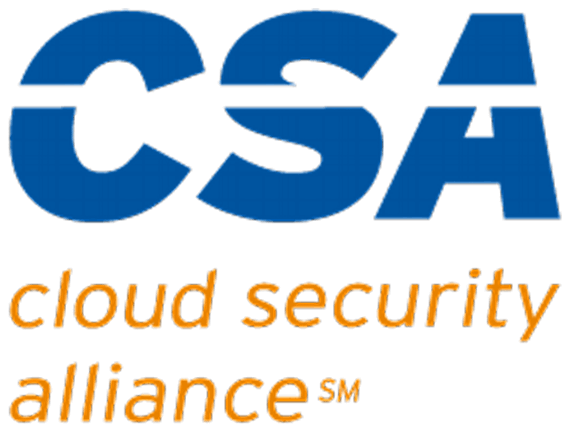
In today’s fast-paced, technology-driven world, small businesses must navigate a landscape of opportunities and challenges. Modern IT solutions are no longer luxury additions for these businesses; they have become essential pillars that support daily operations, drive growth, and safeguard against emerging threats. Integrating effective IT solutions isn’t just about staying competitive—it’s about laying down a robust foundation to support future success.
Small business owners often find themselves grappling with the complex demands of managing IT infrastructure. Issues such as scaling operations on a budget, ensuring data security against cyber threats, and maintaining smooth internal communications can be daunting without the right technological support. Coupled with limited resources and expertise, these challenges underscore the urgent need for reliable and efficient IT systems tailored to their unique needs. As we delve into this article, we will uncover vital IT solutions every small business should consider to overcome these hurdles efficiently and sustainably. Whether you’re an entrepreneur starting on your journey or an established small business aiming for higher efficiency, this guide offers practical insights to help secure your digital foothold in today’s competitive market.
Cloud Computing Solutions
In today’s digital age, cloud computing solutions offer unparalleled scalability and cost-efficiency, addressing some of small businesses’ most pressing needs. Rather than investing heavily in costly infrastructure and software licenses upfront, cloud services allow companies to pay based on usage, which can significantly reduce overhead costs. For instance, a small retail business experiencing seasonal fluctuations can scale its server capacity up or down depending on demand without incurring excessive expenses. This ‘pay-as-you-go’ model provides financial flexibility and ensures that resources are allocated efficiently.
One of the most transformative benefits of cloud computing is its ability to enhance collaboration and support remote work capabilities. Cloud-based applications like Google Workspace or Microsoft 365 enable employees to access files, share documents, and collaborate in real time from any location with an internet connection. This is particularly invaluable for small businesses looking to attract top talent by offering flexible working conditions or managing geographically diverse teams effectively. Additionally, collaborative tools such as shared calendars, VoIP communications, and project management software are seamlessly integrated within these cloud platforms, further streamlining operations across multiple departments.
Data storage and backup solutions offered by cloud computing platforms also provide robust safeguards against data loss—a critical consideration for safeguarding business continuity. Services like Amazon S3 or Azure Backup duplicate important files across various locations to ensure they remain accessible even if one server fails. Coupled with regular automated backups, these solutions help businesses quickly recover from unexpected disruptions like hardware failures or cyberattacks. The peace of mind that comes from knowing your data is securely stored offsite cannot be overstated; it enables business owners to focus more on growth initiatives rather than worrying about potential data catastrophes.
Cybersecurity Measures
In today’s digital landscape, the importance of robust cybersecurity measures for small businesses cannot be overstated. Cyber threats such as malware, ransomware, and phishing attacks are not just concerns for large enterprises; they pose significant risks to smaller organizations that often have fewer resources to combat them. A single cyberattack can result in substantial financial impacts, damage to reputation, and loss of sensitive data. Therefore, protecting against these threats should be a top priority.
Deploying essential cybersecurity tools like antivirus software, firewalls, and encryption is crucial for creating a secure business environment. Antivirus software helps detect and eliminate malicious software before it can cause harm. Firewalls act as a barrier between your internal network and potentially harmful external networks by monitoring incoming and outgoing traffic based on predefined security rules. Encryption protects data by converting it into unreadable code that can only be deciphered with the correct decryption key, ensuring that even if data is intercepted, it remains confidential.
Beyond implementing technical solutions, employee training on security best practices is indispensable. Since human error often plays a role in successful cyberattacks, educating employees about recognizing phishing emails, using strong passwords, and avoiding suspicious links or downloads can significantly reduce vulnerabilities. Regularly updated training sessions ensure that all team members stay informed about evolving threats and understand their role in maintaining cybersecurity. By fostering a culture of awareness and vigilance within the organization, small businesses can build a formidable first line of defense against cyber threats.
Managed IT Services
One of the most significant advantages of outsourcing IT support for small businesses is the ability to focus on core operations while experts handle complex technological needs. Imagine a startup founder trying to troubleshoot server issues during a product launch—time-consuming technical problems can divert attention from strategic initiatives that drive growth. Managed IT services eliminate this distraction, providing peace of mind that seasoned professionals are maintaining and optimizing your IT infrastructure around the clock.
Cost-effective management is another compelling reason to consider managed IT services. Small businesses often operate on tight budgets and may lack the resources to build an in-house IT team. Outsourcing allows them to access essential technological resources without incurring high costs associated with hiring full-time staff. Additionally, many managed service providers offer scalable plans that let businesses pay only for the services they need, which helps control expenses as they grow.
Access to expert knowledge and the latest technologies can level the playing field between small enterprises and larger competitors. Partnering with a managed service provider means tapping into a reservoir of expertise, including cybersecurity strategies, cloud computing solutions, disaster recovery planning, and more. For example, when a small business uses these services, they stay up-to-date with new software updates and security patches automatically applied by their provider—ensuring their systems are always protected against evolving cyber threats without requiring internal specialized skills.
By leveraging managed IT services, small businesses can enhance operational efficiency and equip themselves with advanced tools and insights typically reserved for larger organizations. This democratization of technology empowers smaller players to compete more effectively within their markets, facilitating innovation and driving success in an increasingly digital world.
Unified Communications Systems
In today’s fast-paced business environment, small businesses cannot afford to juggle multiple communication platforms due to their inefficiencies and fragmented workflows. Unified Communications (UC) systems integrate various communication channels such as Voice over Internet Protocol (VoIP), email, instant messaging, video conferencing, and more into a single cohesive platform. This integration streamlines internal and external communications and ensures that important messages are never lost in the shuffle. Imagine a sales team seamlessly switching from an email thread to a video call with a client without switching apps or losing context—this is the power of UC.
Enhanced team collaboration and productivity are key benefits of adopting unified communications. A single platform allows employees to communicate more effectively and access necessary information instantly, which can significantly speed up decision-making processes. For example, project management tools can be integrated within UC systems to provide real-time updates on project statuses, assign tasks through chat functionalities, and quickly resolve issues via video calls. Consequently, teams are better equipped to collaborate, whether in the same office or dispersed across different geographical locations.
Additionally, utilizing cloud-based solutions for unified communications can drastically reduce overall communication costs for small businesses. Traditional communication setups often involve significant expenses related to hardware maintenance and long-distance calling charges. Cloud-based UC systems use internet connections for all forms of communication, which means lower infrastructure costs and reduced need for regular upgrades or repairs. Furthermore, many providers offer flexible subscription models that allow businesses to pay only for services they use, providing greater financial efficiency.
With these advantages in mind, it becomes clear how critical unified communications systems are for maintaining a competitive edge in today’s market. By integrating various communication methods into one streamlined system, enhancing collaborative efforts among teams, and reducing overhead costs through cloud technology, small businesses can ensure they operate at peak efficiency while remaining agile enough to adapt to ongoing changes in the business landscape.
Remote Access Tools
In today’s increasingly mobile and flexible work environment, remote access tools have become indispensable for small businesses. These tools enable employees to securely access company resources from any location, significantly enhancing productivity and ensuring business continuity. By leveraging remote access solutions, companies can remain agile and responsive in a digital-first world while maintaining their competitive edge.
One of the most effective ways to secure data transmission for remote access is by employing Virtual Private Networks (VPNs). VPNs create an encrypted tunnel between the user’s device and the company’s network, protecting sensitive information from potential cyber threats during transit. This layer of security is particularly crucial as employees frequently use public Wi-Fi networks when working remotely or traveling. Implementing VPNs ensures that confidential data such as financial records, customer information, and internal communications remain secure against eavesdropping and malicious attacks.
The benefits of remote access tools extend beyond security; they also play a significant role in employee satisfaction and efficiency. With secure remote access in place, team members can seamlessly collaborate on projects, attend virtual meetings, and manage tasks without being confined to a physical office space. For instance, sales representatives on business trips can update CRM systems in real time with leads they acquire on the go. Similarly, IT managers can monitor and troubleshoot network issues without needing to be onsite. Such flexibility boosts morale and fosters a more dynamic work environment where productivity is maximized regardless of location.
In conclusion, integrating robust remote access tools into your IT infrastructure is a strategic investment for any small business looking to securely support its workforce’s mobility needs. By prioritizing these solutions, companies can achieve enhanced operational efficiency while safeguarding their data against evolving cyber threats.
Backup and Disaster Recovery Solutions
In today’s digital era, data is one of the most valuable assets for any small business. Ensuring that this data is safeguarded against loss or corruption is crucial, and regular backups are a key component of this protective strategy. Implementing an automatic backup system minimizes the risk of human error and allows businesses to maintain current copies of critical information without manual intervention. Regular backups ensure that companies can quickly restore their operations with minimal disruption in the event of accidental deletion, hardware failure, or ransomware attacks.
Rapid recovery solutions are essential for maintaining business continuity during emergencies. For instance, cloud-based disaster recovery options enable companies to swiftly retrieve lost files or revert systems to previous states if an outage occurs. These solutions offer significant advantages over traditional on-premises methods by providing flexible, off-site storage that’s both secure and immediately accessible. In practice, this means a small retail business could recover and continue processing transactions even after a localized server crash by accessing their backed-up data from the cloud.
A comprehensive disaster recovery plan offers peace of mind to small business owners who might otherwise be overwhelmed by potential technology failures. A robust plan includes detailed emergency response procedures and prescribes roles and responsibilities among staff members during such events. For example, an accounting firm might designate specific team members to oversee data retrieval while others focus on customer communication during a crisis. This level of preparedness ensures that all employees know their part in maintaining operational integrity despite unforeseen disruptions.
Ultimately, integrating reliable backup and disaster recovery solutions highlights the paramount importance of protecting company data from all angles. By prioritizing these preventive measures, small businesses safeguard their future against uncertainties while continuing to serve customers efficiently regardless of unexpected challenges. This proactive approach underscores the critical benefits—security, efficiency, and cost-effectiveness—that come with consistently evaluating and updating IT infrastructure as technology evolves.
Conclusion
In today’s fast-paced digital landscape, the integration of robust IT solutions is not merely advantageous for small businesses—it is essential. Effective deployment of tools such as cloud computing services, cybersecurity measures, managed IT services, unified communications systems, remote access tools, and backup and disaster recovery solutions fundamentally drives business growth by enhancing operational efficiency, ensuring security from cyber threats, and maintaining cost-effectiveness.
The critical takeaways for small business owners are clear: adopting well-rounded IT solutions leads to stronger security protocols, streamlined efficiency in operations, and notable cost savings over time. To remain competitive and secure in an ever-evolving technological environment, continuous evaluation and updates of these IT infrastructures are imperative. By staying proactive and embracing these technologies thoughtfully, small businesses can build a resilient foundation that supports sustained success and scalability.




